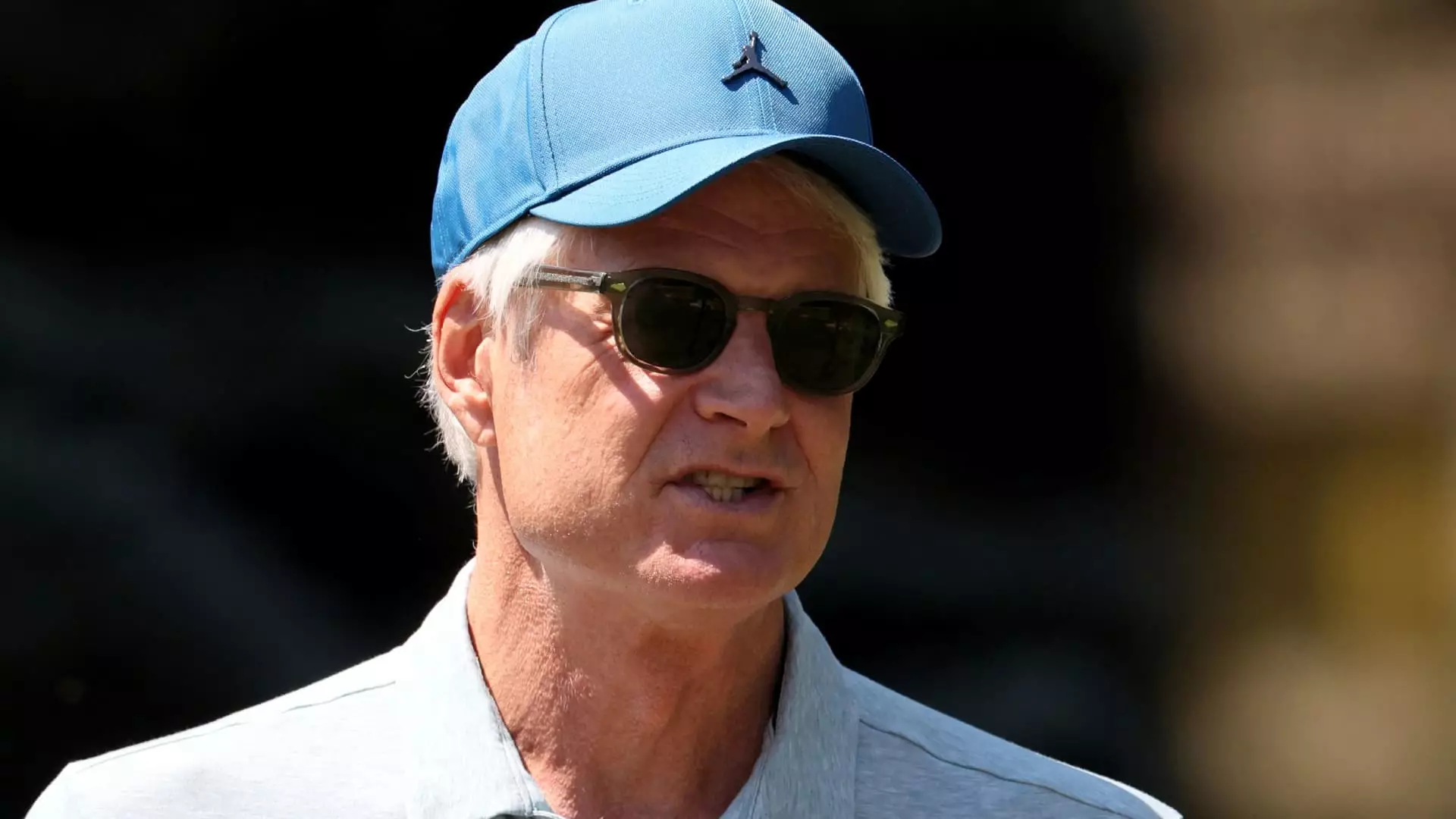On a significant day for Nike, the sports apparel giant revealed that John Donahoe, its CEO since January 2020, will be stepping down effective October 13. Taking his place will be Elliott Hill, a company veteran who is coming out of retirement to assume the role. This leadership transition comes as Nike grapples with considerable financial and operational challenges, including a marked 25% drop in share value this year. The company’s board seems to regard Hill’s experience and leadership as essential to reposition Nike for sustainable growth.
While announcing the transition, Nike’s executive chairman Mark Parker expressed confidence in Hill’s qualifications. He highlighted Hill’s comprehensive understanding of the sneaker industry, his leadership approach, and a deep-seated passion for sports and brand integrity. Parker’s endorsement reflects the board’s desire for a return to safer waters, aiming to stabilize the company amid ongoing restructuring efforts.
Under Donahoe’s leadership, Nike experienced a mixed bag of performance. While annual revenue grew from $39.1 billion to $51.4 billion during his tenure, the journey was not without its pitfalls. The acquisition of a digital-centric business model posed unique challenges and failed to yield the expected results in a competitive retail environment. Critics point towards a significant oversight during Donahoe’s time; Nike became increasingly preoccupied with direct consumer sales through its retail stores and website, effectively compromising its time-honored reputation for innovation.
Consequently, Nike faced a disappointing fiscal report earlier this year, with sales forecasted to drop by 10% against analyst expectations of a 3.2% decline. This alarming financial forecast triggered a historical plummet in stock prices and prompted speculation about Donahoe’s viability as CEO. Although Phil Knight, the co-founder of Nike, showed initial support for Donahoe, the long-term strategic missteps signified a need for a leadership change.
Elliott Hill’s return to Nike seems laden with symbolic significance and practical expectations. He joined Nike as an intern in the 1980s and climbed the ranks to ultimately lead the consumer and marketplace division. Hill’s familiarity with Nike’s distinct culture, operations, and its employees may serve as a crucial asset in revitalizing morale—a vital element currently under strain.
Upon stepping into this new role, Hill expressed a sense of readiness to spearhead initiatives that will help reposition Nike strategically in a rapidly evolving marketplace. “I’m eager to reconnect with the many employees and trusted partners I’ve worked with over the years,” he stated, illustrating a personable approach which can foster a collaborative culture.
Hill’s historical ties to the company could provide a stabilizing effect during this turbulent time, resonating with long-standing employees who yearn for a familiar leadership style that truly understands and embodies Nike’s core principles.
One of the primary focuses for Hill will be to realign the company’s operational strategies with what initially propelled Nike to the forefront of the athletic apparel industry. The leadership change may indicate a pivot back to core principles—emphasizing innovation and product creation that initially distinguished the brand in the marketplace.
Moreover, Hill will need to address issues relating to morale and corporate culture, both of which have reportedly suffered under Donahoe’s leadership. Analysts like Jessica Ramirez emphasize the importance of Hill’s ability to rejuvenate employee spirit and motivation as issues of company culture have taken a backseat relative to e-commerce and direct sales enhancements.
Furthermore, as Nike attempts to regain its footing, rebuilding relationships with wholesale partners could also be a priority. The original thrust towards reducing reliance on wholesale channels created fissures in market share that upstart competitors seized upon. Hill possesses the experience required to negotiate the fine line between direct-selling advantages and collaborative relationships with retailers.
This leadership transition at Nike marks a pivotal moment in the company’s storied history. With Elliott Hill at the helm, one can anticipate a re-engagement with the innovative spirit that propelled Nike to prominence in the first place. The challenges ahead are formidable, requiring adaptive strategies and renewed emphasis on cultural values, yet the return of a familiar face like Hill promises a blend of nostalgia and transformative potential for the sneaker giant looking to regain its luster. The world will be observing closely as Nike navigates this new chapter, with the hope that it resonates profoundly with sports enthusiasts and industry watchers alike.

